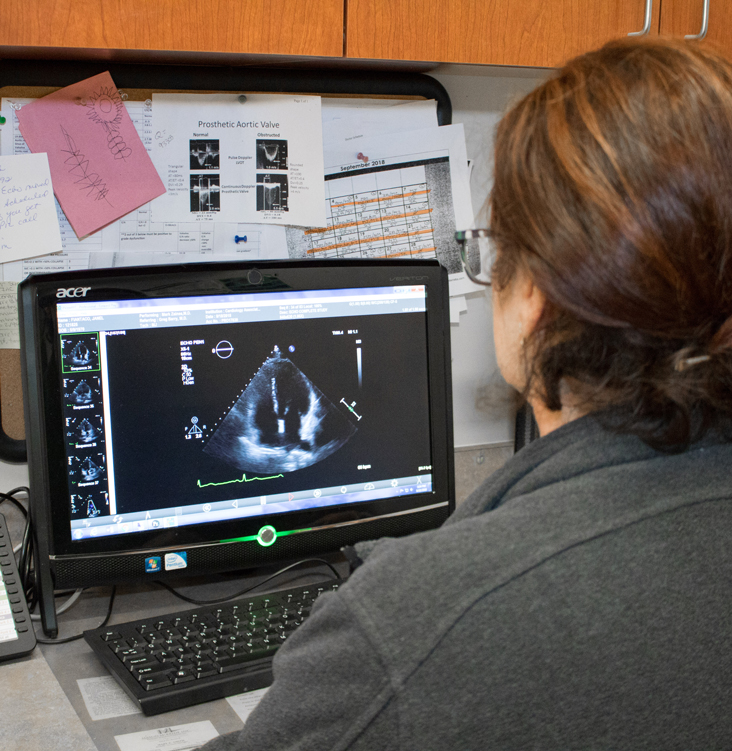
Monitors
Event monitors, cardionet monitors, and Holter monitors can be used for a few days or a more significant period of time to track heart activity. These are especially effective in determining patterns that will help your heart doctor better identify what is happening in and around your heart and the associated triggers.
Learn more about specific heart conditions and treatments below.
WHAT YOU NEED TO KNOW
An event monitor is a portable device used to record your heart’s electrical activity when you have symptoms. It records the same information as an electrocardiogram (ECG), but for longer durations of time. Most of these devices can transmit the recorded information directly to your healthcare provider. This allows him or her to analyze the electrical activity of your heart while you are having symptoms.
This is a portable device used to continuously record your heart’s electrical activity. By continuously tracking a patient’s heart rhythms, doctors are more likely to discover whether an arrhythmia is causing a patient’s symptoms, and then can use the monitors to help manage the patient’s condition.
For this test, you wear a small, portable, battery-powered ECG machine to record heartbeats over a period of 24 to 48 hours during normal activities. At the end of the time period, you will return the monitor to the doctor’s office so it can be read and evaluated.
Designed for long-term use, insertable cardiac monitors are the gold standard for determining causes of infrequent, unexplained arrhythmias. Your doctor uses surgery to implant this device about the size of a zip drive under the skin to monitor and record the heartbeats for many years.



